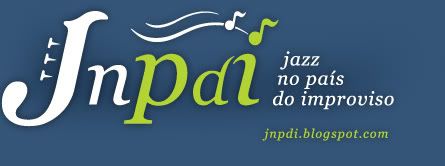Jazz e Nazis

Aproveitando os 60 anos que este ano se celebram do fim da II Guerra Mundial, JNPDI! completa hoje o artigo que publicou há meses sobre a regulamentação criada pelo regime de Hitler para a música, nomeadamente aquela que "carinhosamente" denominava de Judeo/Negroid music.
Pieces in foxtrot rhythm (so-called swing) are not to exceed 20 per cent of the repertoires of light orchestras and dance bands;
In this so-called jazz type repertoire, preference is to be given to compositions in a major key and to lyrics expressing joy in life rather than Jewishly gloomy lyrics as to tempo, preference is also to be given to brisk compositions over slow ones (so-called blues);
However, the pace must not exceed a certain degree of allegro, commensurate with the Aryan sense of discipline and moderation.
On no account will Negroid excesses in tempo (so-called hot jazz) or in solo performances (so-called breaks) be tolerated so-called jazz compositions may contain at most 10 per cent syncopation;
The remainder must consist of a natural legato movement devoid of the hysterical rhythmic reverses characteristic of the music of the barbarian races and conducive to dark instincts alien to the German people (so-called tiffs);
Strictly prohibited is the use of instruments alien to the German spirit (so-called cowbells, flexatone, brushes, etc.) as well as all mutes which turn the noble sound of wind and brass instruments into a Jewish-Freemasonic yowl (so-called wa-wa, hat, etc.)
Also prohibited are so-called drum breaks longer than half a bar in four-quarter beat (except in stylized military marches);
The double bass must be played solely with the bow in so called jazz compositions plucking of the strings is prohibited, since it is damaging to the instrument and detrimental to Aryan musicality; if a so-called pizzicato effect is absolutely desirable for the character of the composition, strict care must be taken lest the string be allowed to patter on the sordine, which is henceforth forbidden;
Musicians are likewise forbidden to make vocal improvisations (so-called scat);
All light orchestras and dance bands [are] advised to restrict the use of saxophones of all keys and to substitute for them the violoncello, the viola, or possibly a suitable folk instrument.
Foram regulamentos como este e outros que fizeram com que, por exemplo, um guitarrista que tinha cantado o scat de Louis Armstrong no tema "Tiger Rag" fosse enviado para um campo de concentração, sob a "grave" acusação de ter "corrompido a cultura musical".
Na rádio a censura ao jazz era óbvia e previsível se escutadas as palavras de Goebbels, Ministro da Propaganda do III Reich...
Now I shall speak quite openly on the question of whether German radio should broadcast so-called jazz music. If by jazz we mean music that is based on rhythm and entirely ignores or even shows contempt for melody, music in which rhythm is indicated primarily by the ugly sounds of whining instruments so insulting to the soul, why then we can only reply to the question entirely in the negative.
Ainda assim o jazz estava no ar através da Rádio de Estocolmo, a única que os Nazis não sabotaram...
Presentemente a censura persiste, mas é de nível económico, sendo ditada pelo marketig e pelas audiências.


0 Comments:
Enviar um comentário
<< Home